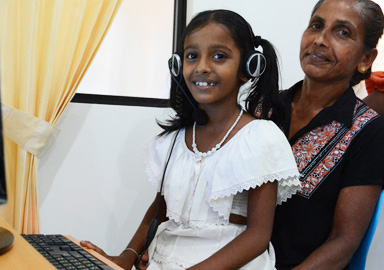

How Fair Trade Makes Life Easier for Three Generations of Women
Dancing is taken very seriously by 11-year-old Budini. Classic dance in Sri Lanka has a long tradition and tells stories. In addition to dance lessons at school, Budini can also take private lessons – a very small luxury in her life. Budini lives together with her younger sister, her mother and her grandmother on the rubber plantation Horana in Sri Lanka. She was five years old when her father first signed an employment contract for a job in a garment factory in Mauritius, 4000 km and five and a half hours by plane from home. More than a month’s salary was paid to the agent who arranged the job, but since then Dinesh Kumar has been able to transfer money to the family regularly. As a rubber tapper in Horana he would earn considerably less and so last year he signed a new 5-year contract for Mauritius, even though Budini and her little sister are in tears every time they have to say goodbye to their father at the airport. Once a year he comes to visit, otherwise only the 15 minutes on the phone every Sunday are left. Budini’s mother did not only take care of the household and of her 85-year-old mother who is bound to a wheelchair, but also of a relative who is suffering from neck cancer. Both died last year.
From Plant to The Factory: Natural Rubber
The small house that the women now live in on their own again is located near the factory in Horana. There, the freshly collected latex milk is pressed into crepe. The long wafer-thin strips of crepe are checked for impurities, which must then be carefully cut out: a work that requires concentration and experience. Gladly, Budini’s grandmother has both, 52-year-old Premavati has been working in the factory for over 30 years. With her work she helps making sure that a small part of the rubber produced in Horana can be sold under fair trade conditions.
7. October 2020
